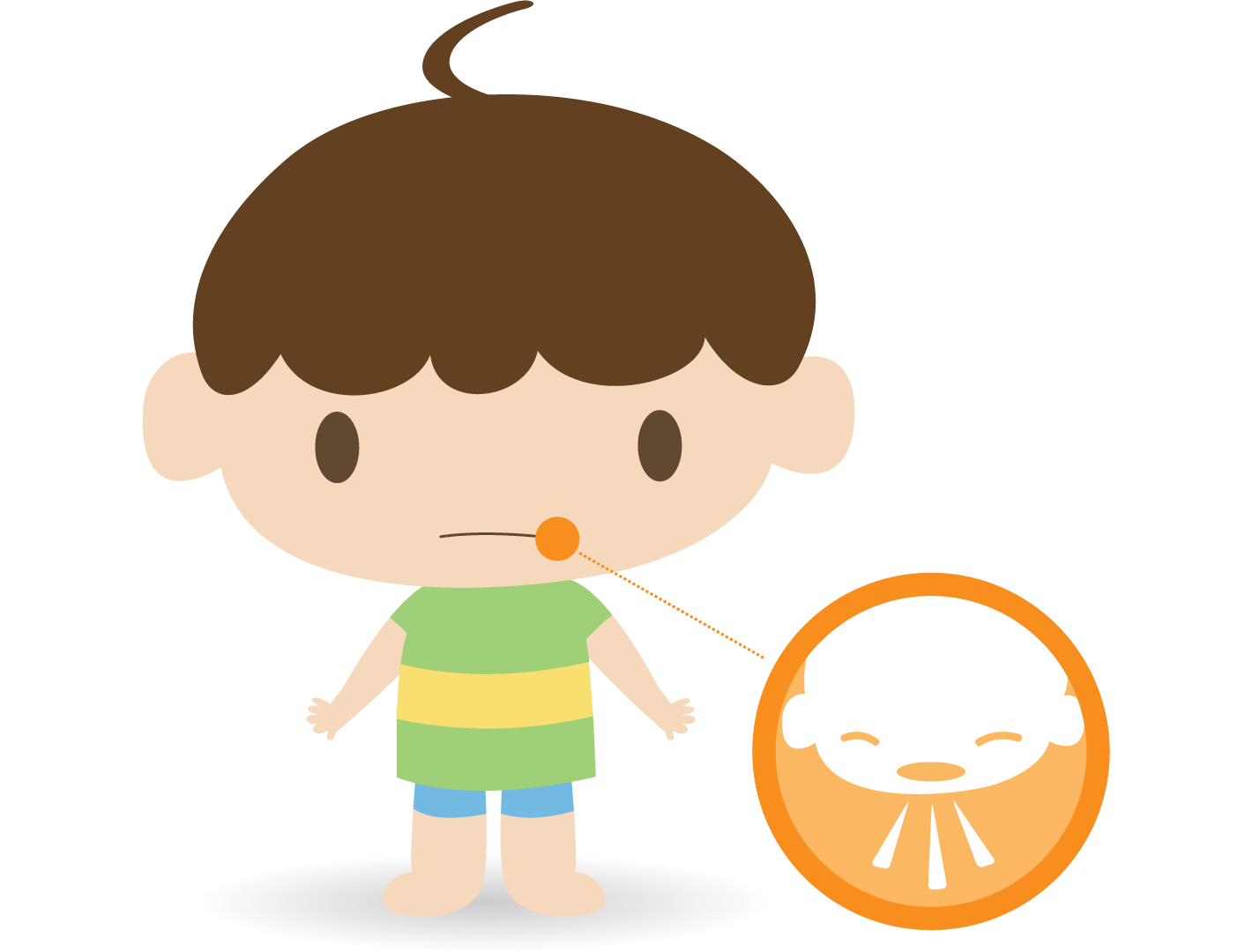
Print / Download Handout: English | French | Arabic | Punjabi
The “common cold” is a viral infection of the nose and throat. It is also known as an upper respiratory tract infection. There are over 200 different viruses that can cause colds. It is normal for children to have an average of 6 to 8 colds per year. Having colds more often is not a sign of a weak immune system. Children develop their immune system by being exposed to many viruses over the years. As children get older, they get sick less often.
The ‘flu’ refers to a specific viral infection caused by the Influenza virus. This virus can make people quite sick, especially young children and older adults. People with the flu have more breathing difficulties and high fevers.
Children with a cold will usually have:
Cold symptoms usually last for 3 to 7 days. Often, symptoms like cough or runny nose, can linger for up to two to three weeks.
Fevers usually happen on the first few days your child is sick. Fevers from a cold should get better within 3 to 5 days.
Most colds are mild and children get better on their own in about one week. About 5 to 10 per cent of kids can develop a bacterial infection because of their cold. Common bacterial infections after a cold include: ear, sinus or chest infections.
Signs that your child may have a bacterial infection are fever lasting more than 4 to 5 days or not feeling better after the first 3 to 5 days of their cold. Your child should be checked by their doctor if they are not better after the first few days of being sick.
Children with asthma or lung problems may have more trouble breathing when they have a cold.
While most children will have mild symptoms and get better in a few days, consider having your child seen by a doctor if they are:
There is no medication to treat a cold, or make it go away faster. Your child’s body will take care of the virus. The best thing to do is to make your child feel comfortable while they are sick.
Colds are very contagious. They are spread through close contact with someone who is sick and coughing or sneezing around you. Touching toys or sharing food with someone who is sick can spread the virus. Children do not get colds from cold air or drafts.
Children with colds are contagious for up to five days after they first get sick. You should keep your child at home if they have a fever or are coughing a lot.
Other tips to prevent spreading the virus:

 It can be scary when your child is sick. But in most cases, you don’t need to go to the emergency
department. If you’re unsure, we’re
here to help.
It can be scary when your child is sick. But in most cases, you don’t need to go to the emergency
department. If you’re unsure, we’re
here to help.
The content provided on these pages is not intended to replace medical advice. If you have concerns about the health of your child, contact your health care provider directly. If your child has an emergency, go to the nearest emergency department or call 911. Alberta Health Services and Project HEAL strive to ensure that all material is correct but will not be held liable for errors or incomplete information contained in these pages.